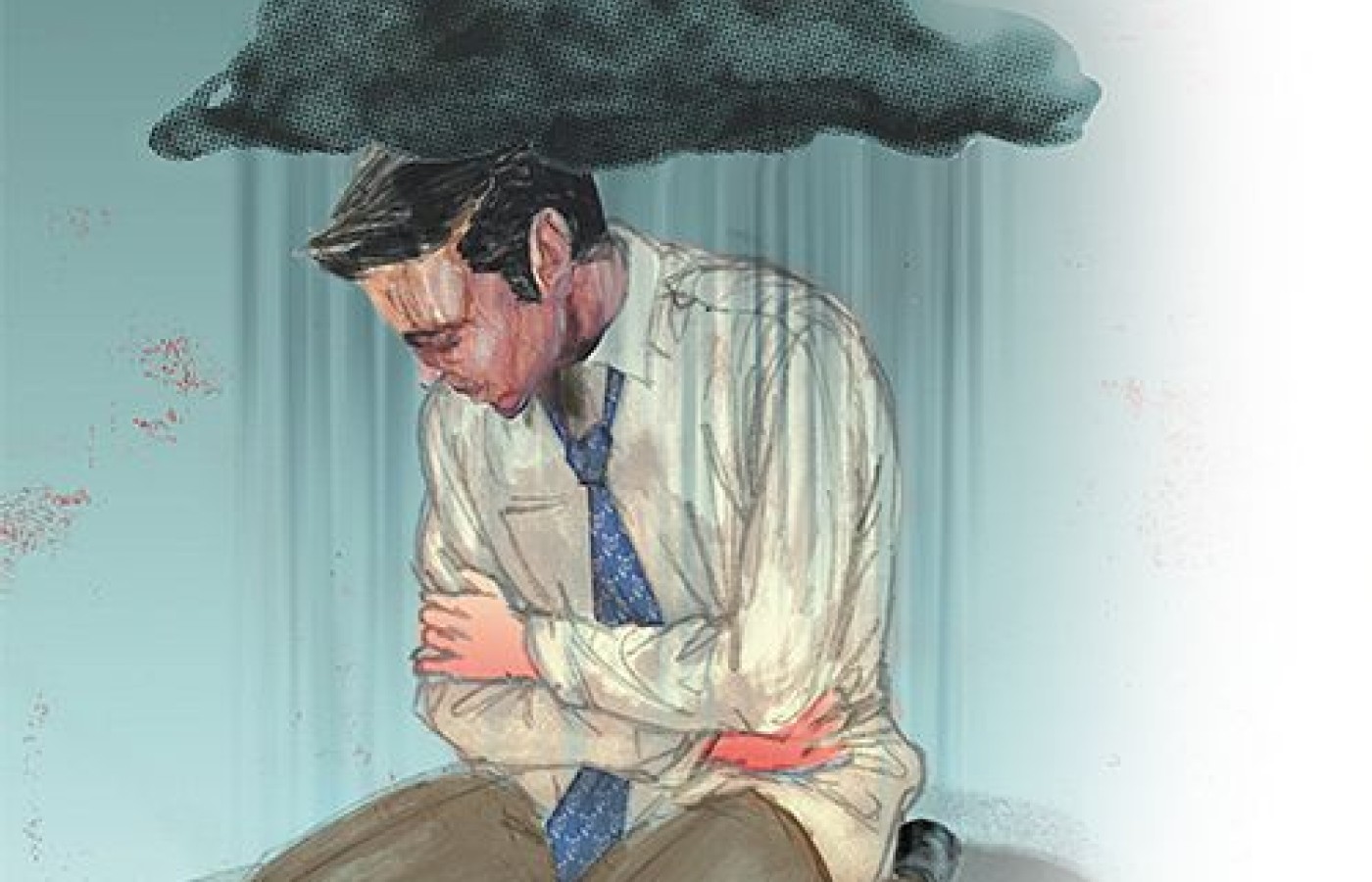It’s a new year and many chiropractors are evaluating what will enhance their respective practices, particularly as it relates to their bottom line. One of the most common questions I get is: “Do I need to be credentialed to bill insurance, and what are the best plans to join?” It’s a loaded question – but one every DC ponders. Whether you're already in-network or pondering whether to join, here's what you need to know.
Preventing Practice Passion Burnout
The pace of change affecting the chiropractic industry has accelerated dramatically. No health care provider has been left free of the implications. Many feel overwhelmed by circumstances that appear beyond their control, such as drastically increased paperwork and reduced reimbursement. Many are anxious and uncertain. Some wish for things to go back to "the way they were" and become even more anxious when they realize rapid change has become the norm. They wonder if what they do for a living has meaning for them anymore.

So Successful That You Fail
I once knew a chiropractor who was so successful that he failed, despite the fact that his new patients and patient volume were high. He was in his office at 6:00 a.m. each weekday and left at nearly 9:00 p.m. each evening. Weekends were used to work from home to catch up on paperwork and administrative details. His fierce and unrelenting work schedule was amply rewarded financially. Unfortunately, along the way, he became a different person.
He became irritable, forgetful, impatient and fatigued. His family, friends and co-workers were disappointed and even repelled by his new personality. Even though he was very successful at work, he was failing at everything else. Eventually, he became bored and disenchanted with the chiropractic profession altogether. He was a classic victim of the vicious cycle of practice passion burnout.
Passion Burnout
What happens when you run a machine too hard and too long? It burns out. The same thing happens to a human machine - a person. When people strive too hard and too long to reach a goal, they burn out. Burnout is a state of fatigue and frustration brought on by an intense pursuit of a goal or devotion to a cause. It brings on a series of physical, emotional and psychological problems.
Burnout victims are like jugglers. They pick up three balls (jobs, tasks, causes) and start juggling them. Once they feel competent enough, they pick up two more balls and then three more. Now they're juggling eight tasks at the same time.
Other people marvel at their ability to do so many things at the same time. The person's typical response is, "I work well under pressure." This may be true; however, no one works well under extreme levels of tension and pressure for extended periods of time. Eventually, the overall quality of their work and life diminishes. They become just another victim of passion burnout.
Symptoms of Lost Passion
Just as a laboratory test can signal illness to the doctor interpreting the results, your practice's statistics can signal lost passion. When your statistics are consistently declining or even stagnant – unchanging month after month – it means you are no longer "mentally" there. You've quit, but the practice hasn't. You just show up and go through the motions.
When you lose passion, you minimize all of your procedures, doing as little as you can to just get by – and your stats show it. You may even stop keeping statistics or, if you do keep them, choose to ignore them because you don't care what they may tell you. Even when you are mentally in your practice, you may feel guilty about not being somewhere else! You divert your passion to other activities and take on other priorities, like golf and hobbies.
A loss of passion places a strain on the relationships in all areas of your life. From a professional standpoint, you avoid contact with your usual colleagues. On a personal level, you nitpick and look for reasons to be disagreeable, especially with your spouse and practice teammates. Because you criticize and complain so much, your practice suffers from a high level of employee turnover. You either replace them or drive them away.
The ultimate symptom of lost passion is called the "buyout syndrome." This is when you can't wait for someone to purchase your practice from you to put you out of your misery.
Causes and Cures for Lost Passion
There are many causes for lost passion. Let's review some of the most common ones and what you can do to combat them.
Cause: Overworked. If you work long or unusual hours, before too long you will feel as if your practice runs you. Solution: You'll keep your passion at a high level if you work early or work late hours – but not both. Work reasonably long days (8-10 hours) and don't take work home with you.
[pb]Cause: Lack of productivity. Another cause of lost passion is becoming "too busy" by filling your day with non-productive tasks. This effectively means you become married to your practice. You engage in a lot of "busy work." For example, you change the placement of items on your desk, but don't really reorganize anything. Solution: Don't procrastinate by putting things aside for tomorrow that could be completed today. Eliminate or delegate! Rekindle your passion by shedding non-productive endeavors and delegating low-priority responsibilities to others. Consider hiring an associate or additional practice team member.
Cause: Not enough work. Just as too much work can zap your passion, so can too much free time! Too much time on your hands causes your priorities to become distorted. Solution: You can avoid this by scheduling your patients' appointments into clusters for greater efficiency. Increase your productivity by raising the bar – hold a Patient Appreciation Day that increases the flow of patients into your practice. Expand your efficiency by "stacking a day" – book an entire day's appointments into half a day and watch your capacities soar!
Stress Is a Major Passion Drain
Much stress is self-imposed. You begin fighting the "solo battle." Your "self talk" includes statements such as, "Why do I have to do it all? Nobody cares but me! Can't anyone do anything right besides me?" You think no one else knows how tough it is.

Solution: Combat the loss of passion that comes from carrying the weight of the world on your shoulders by sharing that weight with others. Attend seminars that provide you with a fresh perspective on how others are managing the constantly changing demands of their practices. Develop a brain-trust partnership of colleagues and mentors with whom you can meet to develop creative strategies and solutions. Visit other progressive practices to see first-hand the attitudes and procedures you can model in your own practice. Listen to tapes and read motivational books to develop inspirational role models.
The stress that comes from being "too busy" can drain your passion because you stop planning for success. This results in your goals becoming unrealistic and unfulfilled. Your life begins to run you. You stop exercising and become tired and unhealthy.
Solution: You can better manage stress by adhering to a schedule that allows time for planning. Adhere to a daily regimen that takes practice-building into account. Get up early and, for a minimum of 15 minutes a day, write down your goals and read your affirmations. Remember to plan for family times and vacations in advance as well. Compose and review a "love list" of your favorite things, people and places, and set a goal to increase their presence in your life.
Plan for Passion
Planning for passion includes planning your office procedures. Take a serious look at your practice; see what your office looks like. Sit where your patients sit; lie where your patients lie. Ask yourself, "If I were a prospective patient, would I come to this practice and trust my health to these people?"
If you've lost your passion for practice, it may be that practice has become routine for you. You've gotten tired of "the same old thing." Add excitement by adding new services or profit centers. Most importantly, get involved in something bigger than yourself. Create a purpose for your practice that includes more than just earning a living. You will eagerly put your heart and soul into a purpose you love and believe in.
Insanity is doing the same thing over and over and expecting a different result. Take a step back from your life. You do not need to leave your city or even your home, but you must be able to examine your life without being consumed by it. This means no phone calls, Facebook, e-mails or printouts. It means peace, possibly silence, and definitely solitude.
Reflect and listen to your heart. Look to your past, present, and future for clues as to what inspires and excites you – and then make a plan to include more of those things in your life.



